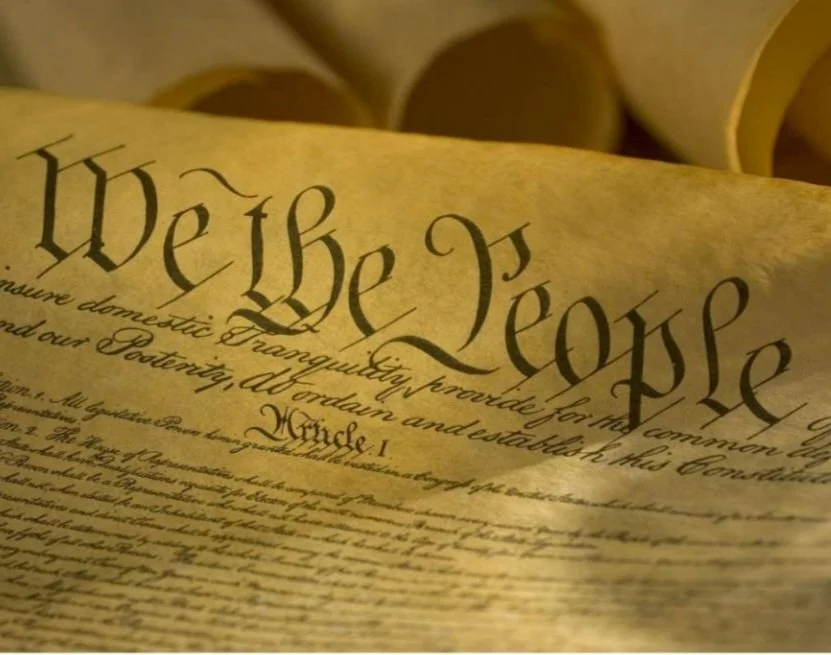Individual Sovereignty: Is the Existence of a State Immoral?
Individualism. The base that the entirety of Western society is built on.
The philosophical theory concerned with Individualism states that the interests and rights of the individual rule above all else; and that the individual should have the highest form of freedom and responsibility in which they are able to exercise their power in order to achieve their goals. However, when we look around us, at the society that we live in today, we see a direct obstacle in the way of absolute Individualism: the existence of the State.
The existence of the State and the inevitable appearance of the Social Contract directly contradicts the theory of Individualism. The Social Contract is viewed by the proponents of Individualism as a shackle to humanity, a never-ending imprisonment of the human will.
So what really is the State? What exactly is the Social Contract? Is it a means for humanity to progress, or an imprisonment of the human will?
Is the existence of a state immoral?
To tackle this issue, we must first build up a framework through which to view this question. Let us start with individualism, then the existence of the state and the conditions of the social contract, and finally, what this all means for us as citizens of Sovereign States.
Individualism
Individualism is the fundamental belief that humanity is the most individual and capable being, and is thus deserving of all the freedom in the world in order to exercise this power. The notion of Individualism has been around since the dawn of humanity, but it wasn’t until 1820 that it was officially coined by Alexis de Tocqueville, a French aristocrat who described Individualism as a “moderate selfishness” in which one should possess the freedom to be primarily concerned with their own small circle of family and friends. Since then, however, Individualism has undergone many rapid changes, with the eventual integration with Social Darwinism (Survival of the Fittest).
We see this integration of Individualism and Social Darwinism especially in Western Societies, where social systems such as Democracy exist simultaneously with the theory of
Capitalism. In recent times, however, the theory of Individualism has continued to evolve, now including relatively modern ideas such as equity and privacy. Despite the rapid transformations that Individualism has gone through within the past few centuries, philosophers and histories alike agree that it is a pillar of modern Western society, and is essential to how we operate as a people.
The State and the Social Contract
Now that we have properly established what Individualism is, what is the meaning of the State, and what is its significance? The State is a Sovereignty, meaning a superior or supreme power/authority in a land. The existence of the State far precedes any notion of Individualism, as we see even primal animals coexisting in groups with a strict hierarchical system.
These archaic hierarchical systems typically followed a patriarchal template, in which there was a “lead” or “alpha” male, followed by his female mates, then followed by children and his subordinates. Thus, the State is inherently born out of a gender-prejudiced system, in which females were expected to bow down to males. We will explore this topic of gender prejudice later on.
An urgent issue that the existence of the State brings up, then, is the issue of loyalty and the willingness of the general public to bow down to this “Alpha Male” or “Superior Power”. This is where the notion of the Social Contract comes in.
With the creation of the State, the Social Contract is born. The main condition of the Social Contract is to coexist with others under the same State peacefully and morally and to bow down to the Supreme Power of the State when needed. In return, members of the State would get benefits such as the right to choose their leader, the right to purchase goods, or the right to own private property.
The Moral Contradiction
With the coexistence of the State and Individualism, then, we can see a clear conflict. How can one truly be free, how can one truly exercise their full freedom and responsibility as promised by Individuality when they are bound by the Social Contract?
The decision to agree with the conditions of the Social Contract is inherently not optional, as for an individual to not do so would be a violation of the State, and prompt a punishment or revoking of rights. Not only is this a complete and utter violation of the individual, but one could argue the existence of a Social Contract, of the State is inherently immoral.
Considering the roots of the State stem from archaic patriarchal systems further drives the notion that the existence of the State is immoral. Not only does the existence of the State take away from the individuality of a person, but it enforces archaic ways of thinking onto these people, affecting entire societies and creating a culture of toxicity and hatred.
Conclusion
There are many arguments to be made for and against the existence of the State. Proponents of Individualism could argue that the State is inherently divisive and hateful, forcing archaic norms onto people for the sake of simplicity. On the other hand, one could argue against this by bringing up the fact that humans are inherently social creatures, and thus can only survive with the existence of a State and the Social Contract.
The fact remains, however, that our world and society are imperfect, and that no matter how we may progress, there is no achievable utopia. But by pondering about the occasional philosophical dilemma, we as a society can move closer and closer towards it.
Sources:
https://www.encyclopedia.com/history/united-states-and-canada/us-history/individualism #:~:text=Individualism%20is%20commonly%20seen%20by,to%20the%20other%20Europea n%20languages
https://www.britannica.com/topic/individualism
https://plato.stanford.edu/entries/sovereignty/



